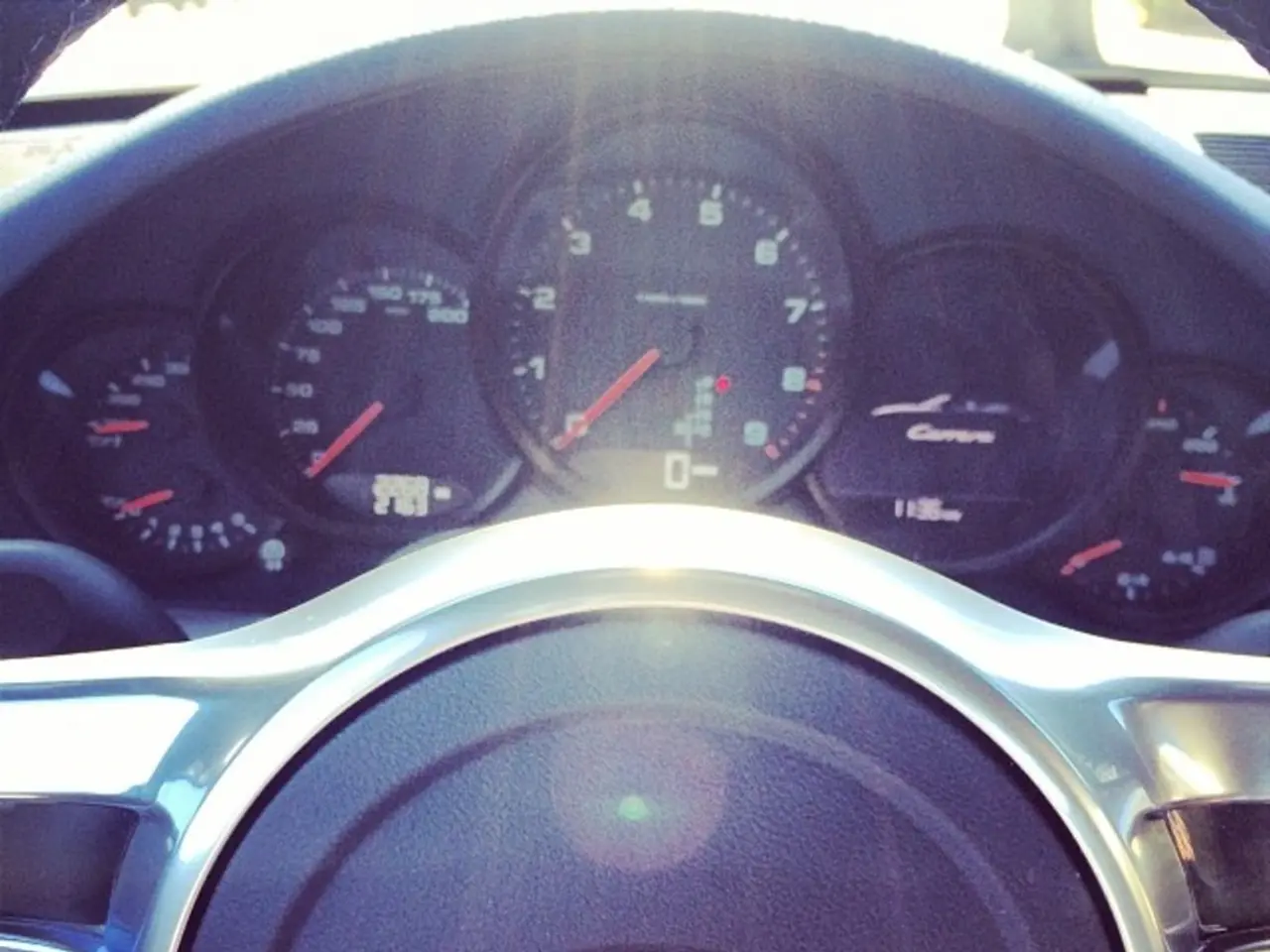Porsche's CEO aims to maintain control over the high-octane operations
Porsche, the iconic German automaker, has announced a change in strategy, opting for a balanced approach that combines electrification with continued development of internal combustion engines (ICEs). This decision comes as the company aims to maintain its premium market position while navigating different regional market dynamics and transitioning towards a more electric future.
Initially, Porsche had planned to lead in electric drive systems, with a goal of turning the brand into a fully electric one. However, the Porsche Macan, intended to be a success story as a pure electric car, is experiencing lower-than-expected demand for electric cars. This shift in consumer preferences, particularly in challenging markets like China, has led Porsche to rethink its strategy.
Despite this, Porsche is not immediately abandoning the internal combustion engine. Instead, the company is investing heavily in advanced ICE technologies. This includes high-performance V-8 engines in key models like the Cayenne, as well as research into synthetic e-fuels to potentially make these engines carbon-neutral and extend their lifespan.
The decision to continue investing in ICEs is driven by the need to remain economically competitive on the global market. It's important to note that Porsche's commitment to electrification remains strong, with the company aiming for 50% of new sales to be electric vehicles (EVs) by 2025, increasing to 80% by 2030, especially in Europe.
Porsche differentiates itself by blending tradition with innovation. For example, the upcoming electric Cayenne will feature artificially generated V-8 engine sounds to preserve the emotional driving experience associated with their iconic combustion engines. This blends Porsche’s motorsport heritage with modern electric drive technology.
In summary, Porsche's strategy is a measured and diversified one, balancing aggressive electrification targets, continued strong support and refinement of high-performance ICEs and hybrids, use of synthetic fuels to reduce carbon impact of ICEs, and innovations like artificial engine sounds to retain brand identity in EVs.
This change in strategy, which potentially signals a U-turn in Porsche's approach to electromobility, is expected to secure long-term stability and growth for the company. However, the success of upcoming SUVs with internal combustion engines remains to be seen.
[1] Electrek.co, "Porsche's new strategy: Balancing electrification with internal combustion engines," [online] Available at: https://electrek.co/2022/03/24/porsche-new-strategy-balancing-electrification-internal-combustion-engines/
[2] Car and Driver, "Porsche's New Strategy: Balancing Electric and Gas Vehicles," [online] Available at: https://www.caranddriver.com/news/a37098769/porsche-electric-gas-hybrid-strategy/
[3] Autocar, "Porsche to continue developing internal combustion engines as it pivots back to plug-in hybrids," [online] Available at: https://www.autocar.co.uk/car-news/new-cars/porsche-to-continue-developing-internal-combustion-engines-as-it-pivots-back-to-plug-in-hybrids
[4] Motor1, "Porsche's Electric Cayenne Will Feature Artificially Generated V8 Engine Sounds," [online] Available at: https://www.motor1.com/news/501935/porsche-electric-cayenne-v8-sounds/
[5] Reuters, "Porsche to stick with internal combustion engines as it pivots back to hybrid vehicles," [online] Available at: https://www.reuters.com/business/autos-transportation/porsche-sticks-internal-combustion-engines-it-pivots-back-hybrid-vehicles-2022-03-22/
The economic and social policy shift at Porsche involves a balanced approach that combines electrification with the continued development of internal combustion engines (ICEs), a strategy aimed to keep the company competitive while transitioning towards a more electric future. Porsche's technology investments include high-performance V-8 engines, synthetic e-fuels, and artificial engine sounds to preserve the brand's identity in electric vehicles.




